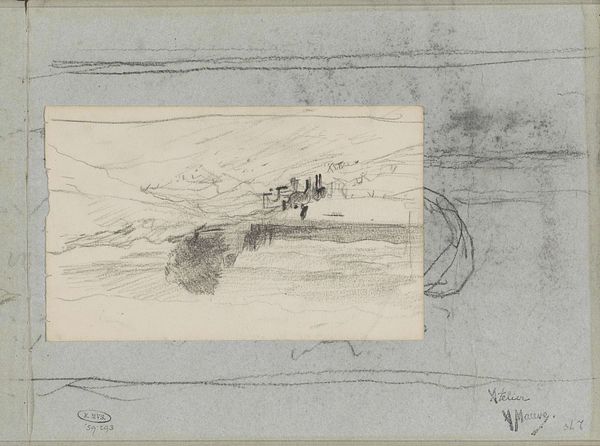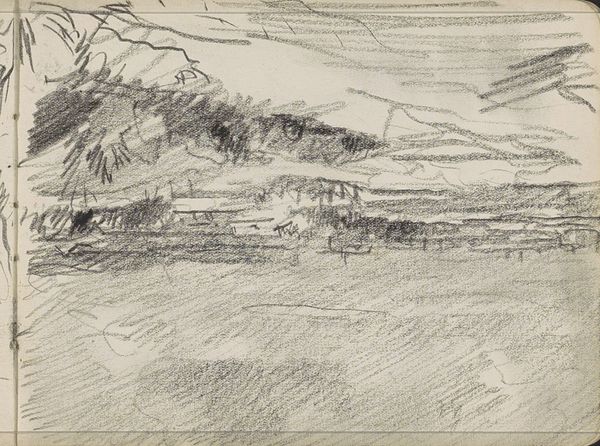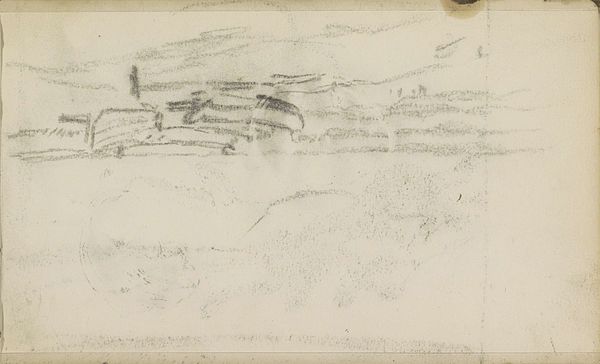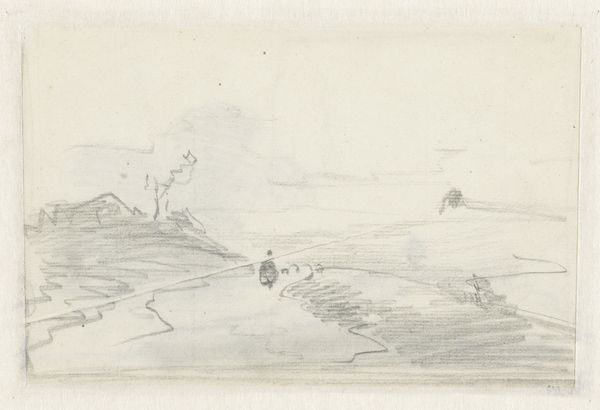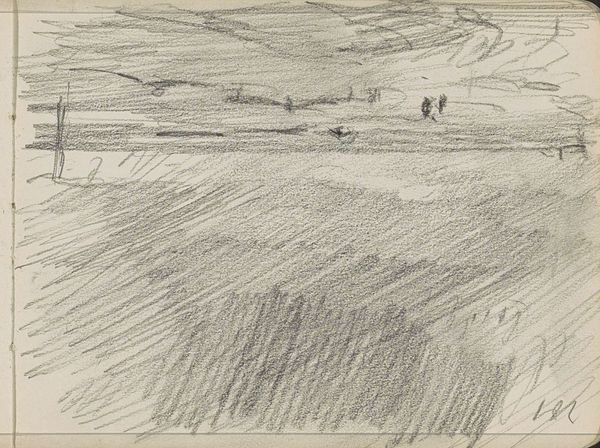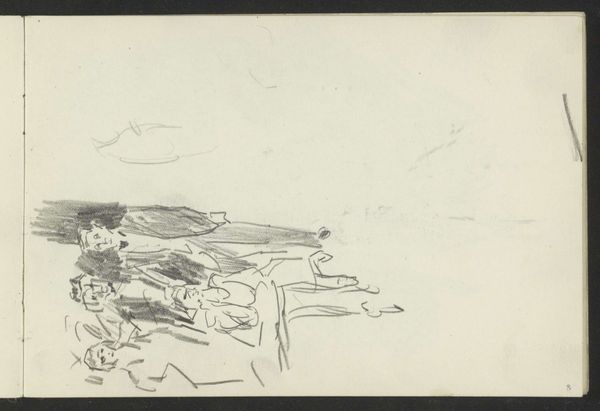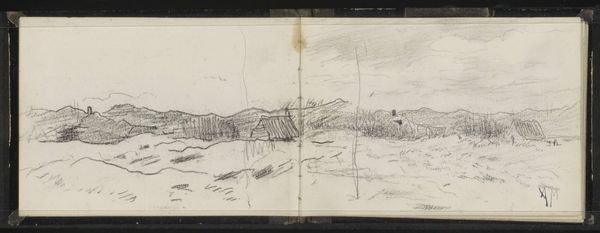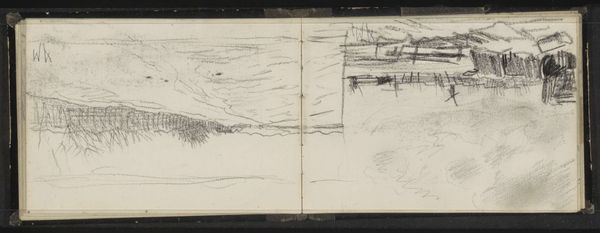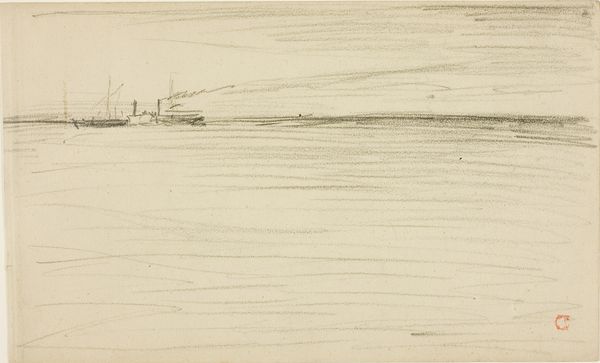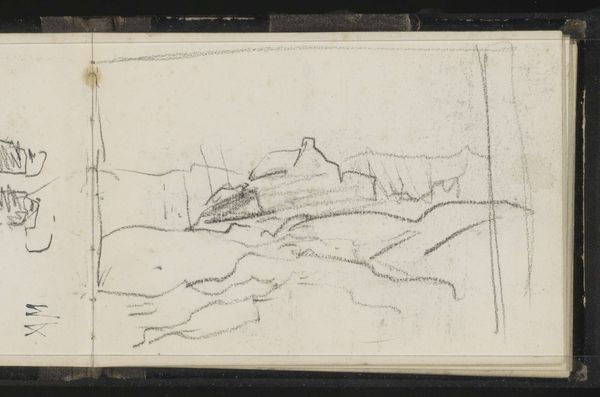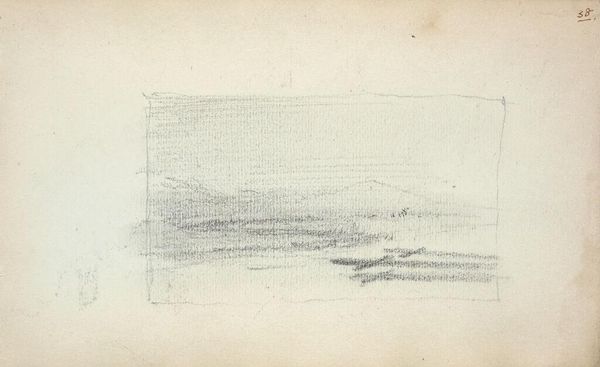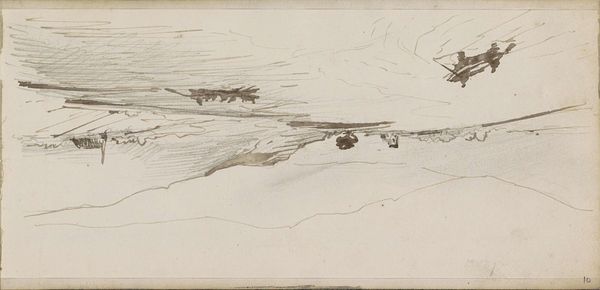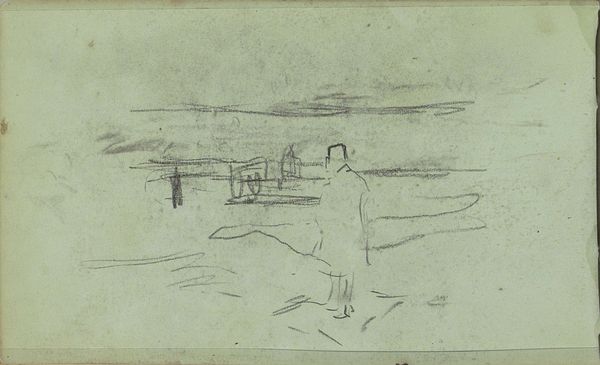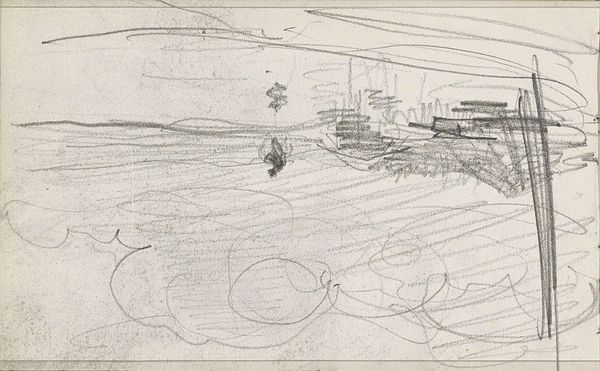
drawing, pencil
#
drawing
#
landscape
#
pencil
#
watercolor
#
realism
Copyright: Rijks Museum: Open Domain
Curator: Ah, here we have Anton Mauve's "Poles on a Beach," a pencil drawing made sometime between 1848 and 1888, currently held at the Rijksmuseum. Editor: Instantly, it feels like a memory—fuzzy and fleeting. The soft graphite evokes a quiet, windswept emptiness. Are those figures I see, or just more posts emerging from the sand? Curator: Precisely! The poles aren't simply structural; they function as visual markers, deeply embedded in the cultural memory of coastal life and maritime industries. They could symbolize boundaries, perhaps remnants of past activity. Editor: Interesting. The lines seem tentative, like hesitations before the tide washes everything away. There’s a palpable sense of melancholy, like witnessing something disappear. Curator: Absolutely. Remember, in many cultures, the sea represents both the source of life and the force of oblivion. The repetitive verticality of the poles—standing against that broad, almost featureless horizon—suggests resilience. Editor: Resilience or futility? The way the sky is sketched with such agitated lines hints at impending weather. They feel isolated, clinging to their existence in the face of the inevitable. Curator: That tension, that balance between hope and despair, is what lends it its enduring power. It captures a very particular feeling tied to coastal communities, this blend of opportunity and threat inherent to their proximity to the sea. The simplicity amplifies this complexity. Editor: The simplicity also makes it so universal. You don't need to know about Dutch coastal life to feel this sense of transience. It taps into something primal—our vulnerability against vast forces, perhaps? Curator: Indeed. Visual motifs of vertical structures piercing the horizon, recurring in art across centuries, remind us of our constant negotiation with the unknown. Editor: It's strange, I almost feel a bit calmer after looking at it. Maybe it is the visual reminder of time passing, both ominous and peaceful, but at the end of the day, time passes nonetheless.
Comments
No comments
Be the first to comment and join the conversation on the ultimate creative platform.
